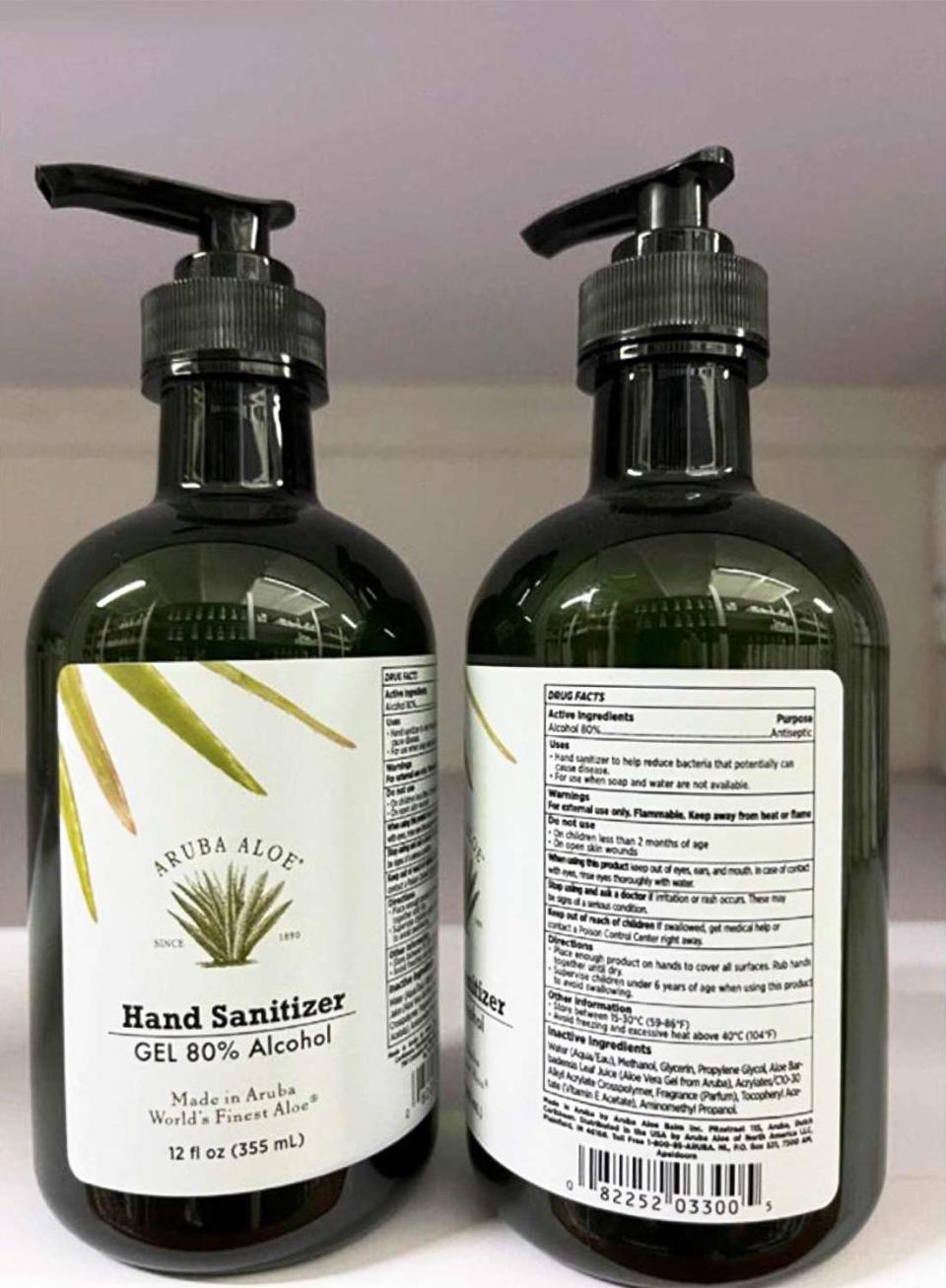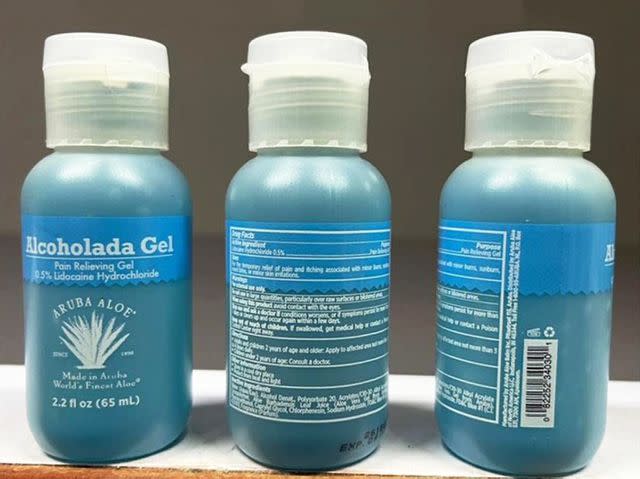Hand Sanitizer, Aloe Gel Recalled as FDA Warns Methanol Exposure Can Cause Blindness, Coma
The FDA announced that 40 lots of Aruba Aloe Hand Sanitizer Gel Alcohol 80% and Aruba Aloe Alcoholada Gel were voluntarily recalled

FDA
Numerous lots of hand sanitizer and aloe gels have been voluntarily recalled due to a presence of methanol, which can be toxic when applied to the skin or ingested.
On April 5, the Food and Drug Administration announced that 40 lots of Aruba Aloe Hand Sanitizer Gel Alcohol 80% and Aruba Aloe Alcoholada Gel were recalled because they contain "alcohol denatured with methanol.”
The recalled products — sold online in the U.S. through the Aruba Aloe Balm website — were distributed between May 1, 2021 and Oct. 27, 2023. The company said that all customers who bought these products were notified via email and offered a discount coupon for their next purchase.
Lot numbers and expiration dates of affected products can be found here.
Never miss a story — sign up for PEOPLE's free daily newsletter to stay up-to-date on the best of what PEOPLE has to offer, from celebrity news to compelling human interest stories.

FDA
Related: Here's the Full List of 76 Hand Sanitizers Containing Toxic Methanol
According to the Centers for Disease Control and Prevention, methanol can be absorbed in the body via inhalation, ingestion, skin contact, or eye contact. If ingested, it can cause a range of issues, including nausea, vomiting, headaches, dizziness, blurred vision, kidney failure, coma, seizures, permanent blindness, permanent damage to the central nervous system, and death.
The FDA recommends consumers immediately stop using the products and dispose of them. They are also urged to contact their physician or healthcare provider if they have experienced any problems that may be related to using the products.
As of April 5, Aruba Aloe Balm N.V. has not received any reports of adverse events related to these products, according to the FDA.
“Although all persons using these products on their hands are at risk, young children who accidentally ingest these products and adolescents and adults who drink these products as an alcohol (ethanol) substitute are most at risk for methanol poisoning,” the agency states.
For more People news, make sure to sign up for our newsletter!
Read the original article on People.

